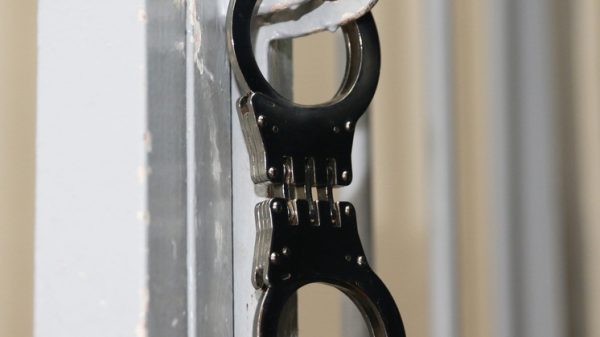 The Taliban returned to power in August 2021. Photo: Getty Thursday April 27 Day 1
The Taliban returned to power in August 2021. Photo: Getty Thursday April 27 Day 1
It's hot and after flying all night from London, I'm tired and prickly, waiting at Doha Airport for a flight to take me to Kabul, my second trip in half a year. I am going to the FMIC [French Medical Institute for Mother and Child] hospital in the capital of Afghanistan, where I have been for over ten years. Together with colleagues from Royal Brompton & Harefield, we're trying to help the local team rebuild a cardiac service that has been devastated by the twin threat of the pandemic and the return of the Taliban.
Commercial flights to Kabul are few and far between. between. Afghan carriers struggling with sanctions are denied access to maintenance and spare parts. Those who work for accredited NGOs are allowed to use scheduled UN Humanitarian Air Service flights from Doha and Dubai.
The payload of today's UN Flight 101 from Doha includes a total of 13 passengers in a 56-seat aircraft. Given the current situation in Afghanistan, even that number seems incredibly high. As befits a World Food Program service, catering can best be described as modest: a thimble of water and a sugary-sweet bun with some obscure pasta.
 A mural in the Afghan capital Photo: Courtesy of Jullien Gaer
A mural in the Afghan capital Photo: Courtesy of Jullien Gaer
Kabul is located at an altitude of 1800 m above sea level, in a narrow valley in the Hindu Kush. As the plane makes its way through the mountains, it's not hard to imagine why the first European travelers to the area thought they had stumbled upon the mythical kingdom of Shangri-La.
Unfortunately, Kabul International Airport today is not Shangri-La. However, it is a visible metaphor for the trillions of dollars the West has lavishly lavished on this country over the past 20 years, and the confusing feeling that no one really knows where much of that money has gone. The airfield is cratered, the runway littered with the remains of planes that have been stripped for parts to keep Afghanistan's dwindling commercial fleet running.
The terminal itself, built with a grant from the Japanese government, is a dump. Since my last visit, the red-black-green tricolor of the Republic of Afghanistan has been replaced by the flag of the Taliban. The new flag of the Islamic Emirate of Afghanistan consists of intricate black sulut calligraphy on a stark white background, the negative of the white-on-black flags favored by most jihadist movements.
White symbolizes the purity of movement; the calligraphy is a shahada (Islamic declaration of faith) intertwined with the new name of the emirate. A large sign in the airside of the terminal building proclaims (more hopefully than expectantly, it seems) that «The Islamic Emirate of Afghanistan is committed to a peaceful and positive relationship with the world.» The Taliban continue to be classified as a terrorist organization and most UN members have imposed sanctions, including a freeze on assets held abroad and an embargo prohibiting all trade other than basic humanitarian assistance.
 Kabul: 'a polluted, disfigured city of over four million people' Credit: Getty
Kabul: 'a polluted, disfigured city of over four million people' Credit: Getty
Today, it's just me and 12 of my traveling companions in the immigration queue. Interestingly, in light of the recent Taliban decrees, both officials stamping passports are women. Equally interesting to me is that the hefty duty-free bags that most of my fellow travelers carry seem to go unnoticed by luggage-scanning authorities. I'm making a mental note to remember next time.
Driving into the city from the airport is striking in the sense of calmness in the city, in stark contrast to the palpable irritability of my many previous visits. It is difficult to say whether this is a manifestation of serenity or suppression. The Taliban, whom we feared in previous years, are now responsible for our security. On the surface, they do a reasonable job: traffic is free, the shops are noisy, and the market is full of fresh produce.
Tranquil, picturesque Kabul, the highlight of the hippie trail, famous for its fruit tree-lined streets, was largely destroyed during the civil war that followed the Russian withdrawal in 1989. Today's Kabul is a polluted, ravaged city of over four million inhabitants, many of whom live in slums that climb the mountains that surround the city.
FMIC is located behind the Medical School of Kabul University in the Aliabad district of the city. Founded in 2005 as a joint venture between the Paris-based NGO La Chaîne de l'Espoir (developing sustainable health infrastructure in emerging markets), the French government and the Aga Khan Development Network, it was originally conceived as a maternity ward (hence the name ), but evolved into a tertiary-level general hospital whose cardiac surgery program, unique to Afghanistan, was its flagship.
 An inscription on the building of the Kabul airport terminal proclaiming the desire for peace. Photo: Courtesy of Julian Gaer
An inscription on the building of the Kabul airport terminal proclaiming the desire for peace. Photo: Courtesy of Julian Gaer
In the year before the pandemic, the local team performed about 600 open-heart surgeries, curing children and adults who would otherwise be doomed to death. Much of this work was abruptly halted in August 2021, but surprisingly given recent history, Kabul University continues to produce highly qualified medical professionals.
The hospital is an oasis of calm, its gardens overlooking the university where most of its staff graduated. For the duration of our eight-day stay, our team of three is accommodated in the «Residence of Foreign Doctors»: a quadrangle of simple but comfortable rooms. All of our needs, from food to laundry and cleaning, are taken care of by Zabi, head domo and faithful servant of the residence all the time I visit. The experience is not unlike that of being a junior doctor—in the days when being a junior doctor was still fun.
Our impending arrival was telegraphed throughout the city. Before I can drop my bags, a phone call calls me to the clinic to see a seemingly endless list of patients awaiting surgery. The hospital is managed on a non-profit basis by the Aga Khan Development Network. The cost of treating children is borne by La Chaîne de l'Espoir, which is responsible for the medical direction of the hospital. Adults must pay for treatment (open heart surgery costs $2,000-$3,000). Those unable to raise this amount can apply to the hospital's welfare department, and most of them will end up with a significant contribution towards the cost of the operation (equal between the Aga Khan Foundation and La Chaine de l'Espoir).
Considering the lack of healthcare in this backward country, it is not surprising that the clinic is overcrowded. As always, I am fascinated by the Afghans, not to mention their style of dress. Afghan men dress stylishly in kurta pajamas, vests and gorgeous turbans. Women, on the other hand, have fewer opportunities to express themselves and are required, as of August 2021, to only open their eyes when leaving the house.
 Gaer: 'As always, I am fascinated by the Afghan people' Credit: Jullien Gaer
Gaer: 'As always, I am fascinated by the Afghan people' Credit: Jullien Gaer
Leaving the clinic many hours later, I feel overwhelmed by the sheer volume of patients. Worried that unfamiliar names, my own poor memory for faces, and an idiosyncratic system of hospital records will at best result in me performing the wrong operation on the wrong patient, I take detailed notes and systematically photograph everyone I see.
Despite the supposed taboo surrounding photography in this part of the world, everyone happily complies with my request. Afghans are in complete agreement with the age of smartphones and most of them not only agree to be photographed, but also usually pose theatrically to make sure they present their best angle.
Friday, April 28, Day 2
The early start shows me heading to the airport to meet with my co-workers, Johnny Weal (Consultant Anesthetist) and Laura Dugdale (Chief Critical Care Nurse). This is their first trip to Afghanistan. The willingness of my colleagues to give up their annual vacation to travel to one of the world's less fashionable holiday destinations and spend a week working for free is truly humiliating. They are consummate professionals and a wonderful company.
Friday, the streets are deserted, the Taliban checkpoints work carelessly, and we are allowed on the road as soon as they notice foreigners in the car, which means we will be back at the clinic soon.
 Surgical team members Johnny Weale and Laura Dugdale on Chicken Street in Kabul. Contributed by Julian Gaer
Surgical team members Johnny Weale and Laura Dugdale on Chicken Street in Kabul. Contributed by Julian Gaer
In previous years, those who could afford it often traveled abroad to Pakistan, India or Iran for medical treatment. Economic and political constraints mean this is now rarely possible. Since the return of the Taliban to power, the hospital has suffered the same brain drain as the nation as a whole.
Dr. Najibullah Bina, a French-trained head of cardiac surgery at the hospital, fled for his life along with many others in August 2021. Of the nine anesthesiologists who were here during my last pre-COVID visit in 2019, four have left the country. One of the two young surgeons we helped train has left, and many other faces from previous visits have disappeared.
Saturday, April 29, Day 3
The first day of the operation, three children are planned. It's always nice to get started. The theater team welcomes us with enthusiasm. I am very pleased to note that two nurses, Khojasta and Shabnam, whom I know from previous visits, are still at their posts despite recent Taliban decrees. Even more encouraging is the fact that three new resident surgeons, one female, have been hired.
Various members of the Taliban hierarchy have made conflicting public statements about recent statements about women at work and in education. Deputy Foreign Minister Sher Mohammad Abbas Stanikzai has publicly criticized decrees restricting women's freedom of movement, dress, behavior and access to education and employment, citing Qur'anic references to support his views that girls' education. This put him at odds with the leadership of Kandahar. The interpretation of the rules varies from region to region and between different sectors of the economy.
Health care is generally regarded as an exception. Hojasta was the one who, when she wasn't being cleaned before surgery, buried her nose in a book—a term paper for the many undergraduate programs she was enrolled in. Talking to her, I learn that although she is happy that she is still working, she was forced to drop out of school. This violation of her human rights is a blow to her morale, not to mention her ambition and ability to earn money.
 Heart surgeon Julien Gaer. Contributed by Julien Gaer.
Heart surgeon Julien Gaer. Contributed by Julien Gaer.
Simple heart surgery in children is a great pleasure; procedures are often permanently cured; children recover at an extraordinary rate, and usually they can't wait to leave the hospital in a couple of days. Sanya is three years old and has a persistent ductus arteriosus (PDA), a connection between her aorta and pulmonary artery, a normal anatomical feature in the womb that usually closes at birth.
Without treatment, PDA can lead to heart failure and death. In developed countries, prenatal diagnosis and surgery have significantly reduced the burden of congenital heart disease. In the West, PDA repair surgery can usually be done with an implantable device, avoiding the need for open surgery. In Afghanistan, such devices are not available, but open surgery is simple and effective. Sana recovered soon after the operation, although a little grumpy.
Soon Laura feels that her heart is touched by the children under our care. But all my fears that it would be difficult for her to assert herself in Taliban-controlled Kabul soon dissipated. Within hours, local nurses follow her instructions, administer blood tests, provide adequate pain relief, and mobilize patients.
Joining us for dinner that evening are Sonia and Jean-Francois Cotin, a wonderful couple with a long history in the region. Sonia is Program Manager for La Chaîne de l'Espoir in Afghanistan; her husband is a polymath with an encyclopedic knowledge of Afghan history who started life as a veterinary surgeon and later became EU Ambassador to Pakistan.
Jean-Francois's emotionless logical analysis makes me rethink some of my views on the Taliban. The current situation is a stark reminder that history is written by the winners. The Taliban emerged in 1994 to counter the corruption of warlords who controlled Afghanistan after the Soviet evacuation.
Our outrage at some of their policies, especially regarding women's rights, is a smokescreen for several truths, the most obvious of which is that many of the countries in the region with whom we not only maintain diplomatic relations but also actively trade, have less savory records. when it comes to religious tolerance and women's rights.
 One of the scheduled UN humanitarian airline flights from Doha and Dubai on the airstrip in Kabul. Photo: Courtesy of Julian Gaer.
One of the scheduled UN humanitarian airline flights from Doha and Dubai on the airstrip in Kabul. Photo: Courtesy of Julian Gaer.
The other is that the Taliban have restored law and order to this backward country in a way that none of its recent predecessors have succeeded in, and that, like populist movements elsewhere in the world, they may hate the educated metropolitan bourgeoisie but enjoy great support among the rural the poor, the people most directly affected by the grotesque corruption of previous regimes.
Whatever you think about the Taliban — and Jean-Francois is certainly not their apologist — the realpolitik is clear: the most powerful army ever either knew the world, waged a two-decade war against the Taliban and lost by a decisive margin. The Western reaction to this defeat was to impose devastating economic sanctions against the ultimate victims of our failure, namely the people of Afghanistan.
Therefore change, if it is to take place, must come from within; something that will only be possible if the country begins to realize part of its significant economic potential. The current Western policy of punitive economic sanctions and refusal to recognize the legitimacy of the Taliban government may have been designed to preserve what we find most abhorrent.
As we head to the hospital to check on patients before bed, my colleague Johnny Weale, a former Royal Navy doctor and submariner who served in Iraq, reminds me that it takes over 50 to get through a time without a war in Afghanistan.” What Afghanistan needs most, he says, is 20 years without war.” Whether peace is achieved is probably less important than how.
Sunday, April 30, Day 4
Today we have recorded the first two adult patients. Unlike children, carefully selected for their simple, treatable pathology, adults often have a list of other medical problems that make their surgery difficult and therefore dangerous. The day is long and it's already 11pm before we get back to the residence. Zabi prepared mantou: delicious meat-filled dumplings found all along the Silk Road from China to Istanbul, served with a rich tomato-yoghurt sauce. We eat greedily and go to bed, hoping that no one will call us at night.
Monday, May 1, Day 5
As we walk to the hospital around 8 am, I notice something sticking out of the top floor window. I ask Johnny if he thinks it might be a rifle. “No,” he replies. I rely on his military experience, and we go upstairs to join the round of the intensive care unit. This is an exact copy of any number of such rounds in hospitals around the world; the overnight team provides a summary of each patient's progress to date, and a plan is made for the next day.
 Afghans are climbing the walls of the Hamid Karzai International Airport, trying to escape from Kabul as the Taliban retake power. Photo: Getty
Afghans are climbing the walls of the Hamid Karzai International Airport, trying to escape from Kabul as the Taliban retake power. Photo: Getty
One of the two adult patients admitted the day before is awake and not connected to a ventilator, and the second is on the way. . There are more trials on the board.
Three more patients scheduled for today, one adult and two children, pass without incident.
Tuesday, May 2, Day 6
Sana, a young CCP girl, is ready to go home; her cheeky good mood and the obvious delight of her parents are very pleasing.
Three more patients, two adults and one child, are scheduled for today. One of the adults, Mohammad Omar Hashem, works as a security guard in the office of La Chaîne de l'Espoir; he is clearly adored by his numerous colleagues, and the string of well-wishers is impressive.
Wednesday, May 3, Day 7
Our colleague, a security guard from La Sheng, is doing well, to everyone's relief.
No trip to FMIC is complete unless you step onto the rooftop of the hospital for a 360-degree view of the city.
 A US Air Force plane takes off from an airport in Kabul. Photo: Getty
A US Air Force plane takes off from an airport in Kabul. Photo: Getty
In the course of this escapade, Johnny and Laura discover that the thing I saw three days ago sticking out of an upstairs window was indeed a rifle belonging to our local sniper, a reminder that while the Taliban have restored order across much of the country, Islamic the state in neighboring Khorasan, although significantly reduced in numbers, is still capable of disturbing the peace. The remaining three cases proceed without incident.
Thursday, May 4, Day 8
Our last day. Johnny and Laura go on a short sightseeing tour of the city, closely watched by a hospital security officer. Chicken Street (There are no chickens on Chicken Street) is an archetypal souvenir street for backpackers. Opium and hashish, which had been readily available in past decades, were swept away, or at least out of sight, by the new regime.
Antiques of dubious origin, carpets, pashminas, Afghan coats, Herat glass, lapis lazuli, dried fruits and nuts of all varieties are available only for cash, since in Afghanistan it is forbidden to use any international payment systems — Visa and the like. Babur Gardens, built in the early 16th century, is one of the city's few surviving tourist attractions, an oasis of tranquility that houses the mausoleum of Emperor Babur and beautiful, albeit derelict, terraced gardens. No need to book.
 Jullien Gaer with Mohammad Osman, a patient he operated on during a previous visit. Photo: Julien Gaer.
Jullien Gaer with Mohammad Osman, a patient he operated on during a previous visit. Photo: Julien Gaer.
Those of us who do this kind of work are often criticized that the follow-up to a country like Afghanistan is so bad that we can't imagine the value of what we're doing. Therefore, before leaving for the airport, I am very glad that I was visited by Mohammad Osman, a patient whom I operated on during a previous visit. I find him in good health when he presents me with the details of his latest blood tests; his smart chef's tunic indicates that he has returned to his main job.
At the airport, on my way back to Doha, I meet up with another old friend: the sniffer dog Cayenne. Cayenne claims my work tool is free of explosives, and like everyone else I've met in Afghanistan, I seem too happy to pose for a photo.
 Cayenne, a bloodhound. Photo: Jullien Gaer
Cayenne, a bloodhound. Photo: Jullien Gaer
During the flight to Doha, I discard the cryptic list and reflect on the trip. Laura received two marriage proposals, both of which graciously declined. We operated on 13 patients in five days without any major failure. The ultimate success will be the autonomy of the local team, which seems to be achievable — or would be achievable if the dedicated people who make up the FMIC team could realize their potential.
For this to happen, the sanctions will have to be lifted, and we the West will have to come to terms with the idea of the Taliban as the legitimate government of Afghanistan. The West has lost the war. We need to get over this and stop punishing the people of the country for our failures.


























































Свежие комментарии